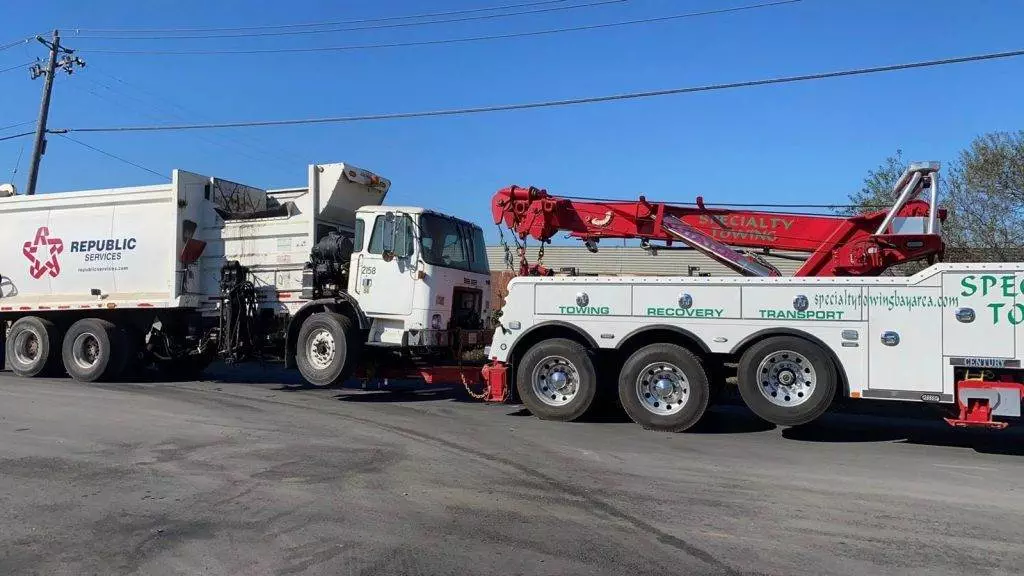Towing a vehicle is a common practice that many individuals resort to for various reasons, be it for recreational purposes, hauling heavy equipment, or simply as a means to transport goods. However, amidst the convenience it offers, a lingering question arises – does towing actually shorten the life of a vehicle? It is a query that instigates curiosity, demands a thorough analysis, and seeks to unravel the potential implications of this widely adopted practice. Understanding the impact of towing on a vehicle’s longevity is crucial for vehicle owners and enthusiasts alike, as it allows for informed decision-making and ensures the optimal care and maintenance of their valuable assets. In this article, we will delve deep into the world of towing and explore the various factors that contribute to the potential lifespan reduction of a vehicle.
Does Towing Shorten The Life Of A Vehicle?
As a vehicle owner, it is natural to be concerned about how towing may affect the longevity of your vehicle. Towing involves an additional load being placed on your vehicle, which can potentially lead to increased wear and tear on various components. In this article, we will explore the factors that affect vehicle longevity during towing, as well as the specific effects towing can have on different systems of your vehicle. Additionally, we will discuss maintenance practices that can help extend the life of your vehicle, even if it is used for towing purposes.
Understanding the Impact of Towing on Vehicle Life
Towing can have a significant impact on the overall life of a vehicle. The added weight from the trailer or other towed vehicle places additional stress on various components, which can lead to accelerated wear and tear. However, the extent to which towing shortens the life of a vehicle depends on several factors.
Factors That Affect Vehicle Longevity During Towing
Several factors come into play when considering the impact of towing on the longevity of a vehicle. Firstly, the weight of the towed load is crucial. The heavier the load, the more strain it places on the vehicle’s engine, transmission, braking system, and suspension. Additionally, the distance traveled while towing, as well as the frequency of towing, have a cumulative effect on the wear and tear experienced by the vehicle.
Another critical factor to consider is the vehicle’s towing capacity. Every vehicle has a specified maximum weight it can safely tow. Exceeding this limit can put excessive strain on the vehicle’s components, leading to potential damage and a decreased lifespan.

This image is property of specialtytowingbayarea.com.
Effect of Towing on Engine Performance
Towing places a considerable load on the engine. The engine has to work harder to move the combined weight of the vehicle and the towed load, leading to increased strain on its internal components. Continuous towing without proper cooling and maintenance can result in the engine overheating, which can cause permanent damage such as warped cylinder heads or a blown head gasket. Regular maintenance, including oil changes and checking the cooling system, is essential to ensure the engine’s performance and longevity.
Effect of Towing on Transmission
The transmission is another component that bears the brunt of towing. The added weight increases the workload on the transmission, leading to higher operating temperatures and increased wear on the clutch plates and torque converter. Over time, this additional stress can lead to transmission failure or reduced lifespan. To mitigate these risks, it is crucial to use the appropriate transmission cooler, maintain proper fluid levels, and avoid excessive shifting or acceleration while towing.

This image is property of specialtytowingbayarea.com.
Effect of Towing on Braking System
Towing places additional strain on the braking system due to the increased weight. Braking distances may be longer, and the brakes can experience more heat buildup, potentially leading to brake fade or failure. Regular inspections and maintenance of the brake pads, rotors, and brake fluid are essential when towing to ensure optimal braking performance and safety.
Effect of Towing on Suspension
The suspension system plays a vital role in providing stability and control while towing. The added weight can cause the suspension components to compress and wear out more quickly. This increased stress can lead to sagging or bottoming out, negatively affecting the vehicle’s handling and ride quality. Regular inspections, including checking for signs of sag or excessive wear, can help identify and address suspension issues promptly.

This image is property of specialtytowingbayarea.com.
Effect of Towing on Cooling System
The cooling system is essential to regulate the engine’s temperature, especially during towing. The increased workload on the engine generates more heat, and a failure in the cooling system can result in engine overheating and damage. Regular coolant checks, radiator maintenance, and inspections are crucial to prevent overheating and maintain optimal engine performance during towing.
Effect of Towing on Electrical System
Towing can also have an impact on the electrical system of a vehicle. The added load from the trailer lights and other electrical accessories can strain the vehicle’s battery and alternator. Ensuring that the electrical system is in good working order, with properly rated components, can help prevent issues such as battery drain or alternator failure during towing.

This image is property of specialtytowingbayarea.com.
Maintenance Practices to Extend Vehicle Life
While towing can impose additional stress on your vehicle, proper maintenance practices can help extend its lifespan. Regular maintenance, including oil changes, fluid checks, and tune-ups, can keep the engine running smoothly and minimize wear and tear. Additionally, adhering to the vehicle’s recommended towing capacity, using the appropriate towing equipment, and observing safe towing practices can reduce excessive strain on the vehicle’s components.
Preventive maintenance is especially crucial for vehicles used for towing. Regularly inspecting and addressing any signs of wear or damage to the engine, transmission, braking system, suspension, cooling system, and electrical system can help detect and prevent issues before they become major problems. Following the manufacturer’s recommended maintenance schedule and consulting with a professional mechanic can provide valuable guidance in maintaining your vehicle’s health when towing.
Conclusion
Towing can indeed have an impact on the overall life of a vehicle, as the added weight places increased strain on various components. However, by understanding and addressing the factors that affect vehicle longevity during towing, implementing proper maintenance practices, and adhering to safe towing practices, you can mitigate the risks and extend the life of your vehicle. Regular inspections, maintenance, and seeking professional advice when needed will help ensure the optimal performance and longevity of your vehicle, even when towing heavy loads.

This image is property of thecartowing.com.